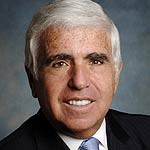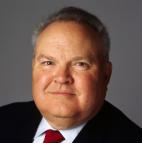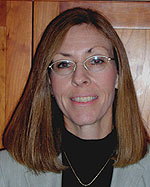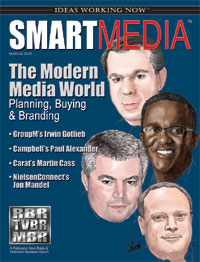|
|
|
|
|
Volume 24, Issue 47, Jim Carnegie, Editor & Publisher
|
Thursday Morning March 8th, 2007
|
|
|
Radio News ®
|
 Karmazin back on the Hill Karmazin back on the Hill
The definition of the market is going to be a huge key to the success of the proposed merger between rival DARS services XM and Sirius. DARS says it competes with all other audio services; broadcasters and consumer advocates says its much more a two-company market that wants to monopolize. Yesterday's hearing on the future of radio hosted by Ed Markey (D-MA) and the Subcommittee on Telecommunications and the Internet had much in common with an earlier one hosted by John Conyers (D-MI) and the Judiciary Committee's Antitrust Task Force. The fact that the proposed XM/Sirius merger was the main event was the most obvious, and the presence of Sirius honcho Mel Karmazin went right along with that focus. The other panelists were different, but Greater Media's Peter Smyth was effectively a stand-in for NAB's David Rehr, and Consumer Union's Gene Kimmelman was effectively a stand-in for the Consumer Federation of America's Mark Cooper. Also on hand were Geoffrey C. Blackwell of Chickasaw Nations Industries and RealNetworks' Robert Kimball. As before, Karmazin said that the merger made sense to the boards of both merging companies, and that he thought he could make the case that it is not anti-competitive, and that it is in the public interest. Smyth repeated the arguments made by Rehr the previous week, that it would be a monopoly, bad for consumers, and that the merging entities cannot be trusted to follow the rules.
RBR observation: The New York Times reports that FCC Chairman Kevin Martin (R) has privately expressed skepticism about the merger. Since Martin is firmly entrenched in the deregulatory wing of the Commission, this would appear to be a major hurdle to be overcome. But this one has a long way to go. Stay tuned.
| Statement summaries |
|
|
|
Broadcasters comment on new internet royalty fees;
are they good for radio?
The NAB, representing radio broadcasters, has so far been silent on the new, exorbitant internet streaming royalty fees (3/7/07 RBR #46). We were told this is due to staffers being present at the proposed XM/Sirius merger hearing yesterday before the House of Representatives Subcommittee on Telecommunications and the Internet (see related story). Broadcasters we spoke to, like Entercom's David Field, mentioned they were still analyzing the new fees and deciding where to go with their streaming audio. No decision has been made yet. WBEB-FM Philadelphia's Jerry Lee told us much the same: "I haven't seen the math yet, but I've asked my people to analyze it. It sounds pretty bad. My take is if it isn't changed, at least the people that are webcasters are not going to be around. It sounds horrendous."
 Said Bonneville CEO Bruce Reese: "We've had good conversations with the RIAA people. We really think there is a shared interest that we have. Unfortunately we haven't been able to come to an agreement on how to approach this issue and it ends up being put in the hands of the CRT/CRB. They do the best they can, but I just don' think this decision has anything to the reality of what's good business for the record industry, the artists or for us. I don't think this does anybody good." Said Bonneville CEO Bruce Reese: "We've had good conversations with the RIAA people. We really think there is a shared interest that we have. Unfortunately we haven't been able to come to an agreement on how to approach this issue and it ends up being put in the hands of the CRT/CRB. They do the best they can, but I just don' think this decision has anything to the reality of what's good business for the record industry, the artists or for us. I don't think this does anybody good."
Are you going to pull your online streams? "We have not made that decision, but for us at this point, streaming is a leap of faith, to use the words of Mr. Kierkegaard. This is going to be a good business for us in the future and we need to be in this space. It is not a positive financial benefit for us at this time. So if it gets to the point that that leap of faith gets to be way to expensive, then we'll have to give it serious thought. I can't imagine that we would just flush this money," Reese explained.
Remember, your online unsigned artists site ichannelmusic.com (which is already also on HD-2 in Salt Lake/102.7 and soon to be on 103.5 HD-2 in DC), there should be no fees for you at all. "That's right-that's why we did it!'
RBR observation: Let's say these fees stick and anybody and everybody who streams audio pulls their streams. Wouldn't that actually be good for traditional radio, as it would send audio advertisers back that had been spending in internet radio? Radio stations could cut their streams and still have their cash cow terrestrial signals-no biggie. The issue has actually been discussed at NAB board meetings-if streaming royalty fees are hiked up as much as possible, online radio competition for ad dollars would fall back to a minimum. Remember, if congress ends up lowering the fees 50% from what has been proposed here, the rates will still be 50% higher. In the end, congress can do just about anything-expect an amendment to these new fees. It's better to be outrageous if you want to get the rates to a "compromisable" level. Last but not least this is just the tip of the iceberg in pushing the radio medium between a rock and a growth hard place. Raising ad rates sounds nice but in reality that will not happen as many broadcasters are just now toying with the internet. These new internet royalty fees have to be stopped. NAB get a dog in this fight and quick as not all NAB staffers have to sit at a hearing watching Karmazin.
|
|
|
Skeptics sound off on Clear Channel buy-out
Barron's Senior Editor Andrew Bary has sounded alarm bells about the viability of Clear Channel LBO which would transfer it to private equity along with current management. Banc of America analyst Jonathan A. Jacoby has also weighed in on the transaction's shaky foundations. Bary notes that "several big institutional shareholders, including Fidelity Investments, Clear Channel's largest holder, plan to vote against the deal because they believe the cash offer of 37.60 a share undervalues the company by at least several dollars a share." He notes the 67% shareholder approval hurdle which must be cleared, and that Fidelity puts a 10% speed bump on the runway to that hurdle. He says that Barron's has learned that "...several other big institutional investors plan to vote down the deal." Then there is the conventional wisdom which holds that somewhere between 10%-15% of shareholders will be no-shows on ballot day, and Bary thinks the math doesn't add up. Jacoby does not believe that the private equity buyers will bump up the price to the 42 dollar range, and that the deal will fall apart. And that, he thinks, may be good for the stock price, for three reasons. One is that shareholders may apply pressure on senior management to increase value, that up to 30% of outstanding stock could be repurchased and boost stock prices, and selling selected broadcast and international outdoor assets could increase value.
 Can you get off the Street Can you get off the Street
by going to Zell?
A lot of media companies, including radio, television and newspaper companies, have learned what it's like to be on the short three-month Wall Street leash that is yoked around their necks on the day after their IPO. According to the Los Angeles Times, a company with interests in all three businesses is developing a strong interest in an off-ramp that would get them away from public investors, but would require them to go to Zell. That's Sam Zell, the "Chicago real estate magnate," who is considering buying the company in question, Tribune. Zell, widely known as the "Grave Dancer," has a reputation for going into investment areas where others fear to tread. He reportedly been saying that his offer is a longshot, but others are privately expressing the opinion that his offer has legs. Although this is apparently a leak-driven story about which nobody can comment on the record, somebody else seems to think a Zell proposal may have legs. MarketWatch notes that the stock rode the rumors to a modest 1.1% gain, while other newspaper-based companies had modest losses.
RBR observation: Any deal for Tribune faces the huge cross-ownership problem. Many of Tribune's newspaper/television combos are operating under temporary waivers of FCC rules, which Tribune hoped would have been updated on 6/2/03. That result was delayed (but not explicitly shot down) by the courts, also temporarily, and sent back to the FCC for reconsideration. Continued opposition from public interest groups and the Democratic takeover of Congress have put relaxed broadcast/newspaper ownership rules in even greater doubt than before, despite active support for this from FCC Chairman Kevin Martin (R). Stay tuned.
|
|
|
|
| Wall Street Media Business Report TM |
 Westwood One Q4 loss increases Westwood One Q4 loss increases
Westwood One posted a wider Q4 loss, primarily due to a 515.9 million goodwill impairment charge. WW1 reported a loss of 488.6 million, or 5.68 per share, compared with a profit of 22.5 million, or 25 cents per share, in Q4 last year. Excluding the goodwill impairment charge, net income totaled 14.6 million, or 17 cents per share. Analysts were expecting a profit of 10 cents per share, according to a Thomson Financial poll. Quarterly revenue fell 12% to 129.8 million from 147 million a year ago. Consensus estimates put sales at 125.8 million. FY, Westwood had a loss of 469.5 million, or 5.46 per share, compared with a profit of 77.9 million, or 85 cents per share, in the previous year. Excluding the goodwill impairment charge, FY earnings were 33.7 million, or 39 cents per share. FY revenue was down 11% to 494 million from 557.8 million on adverse market conditions, reduced demand for products and services and increased competition. WW1 experienced a 7.8% decline in revenues from national and a 14.6% decline in revenues from local/regional. Operating expenses for 2006 were 930 million, which included an unusual and infrequent non-cash goodwill impairment of 515.9 million. Excluding this item, operating expenses for 2006 increased by 0.2 million to 414.1 million compared to 413.9 million for 2005. In 2006, WW1 experienced lower distribution, lower payroll and related benefit costs. Offsetting such reductions are increased programming, production, and talent related expenses associated with both new and existing program offerings, including costs associated with the exclusive broadcast of the 2006 Winter Olympic games from Torino, Italy. For Q4, excluding the goodwill impairment, operating expenses declined 4.9 million or 4.6%, when compared to the fourth quarter 2005. For Q1, WW1 expects low double digit decreases in revenues and low single digit decreases in operating expenses, resulting in double digit declines in operating income before depreciation and amortization.
|
|
|
|
|
Ad Business Report TM
|
 CRB decision a call to CRB decision a call to
action for broadcasters
By Jennifer Lane
The recent decision issued by the Copyright Royalty Board (CRB) with regard to performance royalties to be paid by online radio stations for the next five years is a call to action for the broadcasting industry. Given the fact over 50 million Americans now listen to online radio each month, one can assume that the recording industry does not want online radio to disappear. Listeners have found a new way to discover and listen to music. They choose Internet radio for its greater choice of format, and its decreased commercial load. And they listen longer. At the record label level, the recording industry sees value in this. Yet the rates issued by the CRB decision are unaffordable - probably equaling over 100% of total revenues for most webcasters now, and rising 30% per year for the next four years.
So what does this mean for Internet radio?
Rates need to be established that both the record companies and the webcasters...
| Read More |
Starcom MediaVest launches SMG Multicultural;
Gadsby in charge
Starcom MediaVest Group announced the formation of a new unit tasked with oversight of multicultural communication throughout the SMG network. SMG Multicultural will be responsible for guiding innovation in SMG's product, driving total holistic integration across platforms and demographics. With SMG Multicultural comes the simultaneous launch of Forty Two Degrees at MediaVest (MV42), the newest multicultural agency in the network. MV42 will be based in New York to work in close alignment with MediaVest, focusing consumer programs on Hispanic, African American, Asian and emerging market strategies. SMG Multicultural will be led by Monica Gadsby, a 20-year veteran in multicultural media and trailblazer in the space. As CEO of SMG Multicultural, Gadsby is at the helm of the country's leading multicultural division, which will be comprised of three separate agencies, including a special division of GM Planworks, a newly named New York office, and multicultural agency Tapestry. "The growth and launch of our agencies is indicative of the incredible growth in the space," said Gadsby. "In particular, the formation of Forty Two Degrees at MediaVest is a product of SMG's long heritage of success in multicultural media as well as an agency structure that serves as the model example for total market integration. MV42 shares a majority of its client roster with MediaVest, including Kraft, Masterfoods, Ross Laboratories, Sunny Delight and P&G.
|
|
|
|
| Media Business Report TM |
 Can you Topps this? Can you Topps this?
Topps Company, maker of Bazooka bubble gum and baseball cards, has been sold, although due to internal dissension it may not make it to the finish line. One of its members, The Torante Co., is an investment firm created by former ABC/Disney CEO Michael Eisner, joining Madison Dearborn Partners and others in a 9.75/share offer. According to the Associated Press, Topps board member Arnaud Ajdler and an investment firm are trying to kill the deal. They think the company was not shopped around properly.
RBR observation: In our youth, we were often willing to do whatever Mom wished to get a quarter, good for five packs of Topps product. But if we opened up a pack and found that the picture of Mickey ended with Mouse rather than Mantle, we would dissent, too, and that card would be going straight to the bicycle spokes. Of course, kids today would probably have to find an alternative to clothe spins to fasten the card, and that's if they can even find the card. We wanted to purchase a pack last summer as a gag birthday gift for a friend, and couldn't find any at the either the local convenience nor the local drug store. Our childhood would have been completely altered if this was the case back then. We would suggest that whoever winds up with the company had best look into marketing and distribution immediately.
|
|
|
|
| Media Markets & Money TM |
Buyers still want radio stations, despite soft growth
"Contradiction reigns in the radio industry! The industry suffers through another lackluster year in 2006 and the prospects for 2007 are only marginally better while there is increased interest in selling and buying radio stations. Do these new prospective owners see weak revenue growth as an opportunity to acquire underperforming stations and are willing to pay strong prices for that opportunity? Clearly, yes and only time will tell whether they are correct," said Mark Fratrik, Vice President, BIA Financial Network, when we asked for his 2007 radio industry outlook. "In the immediate future, the radio industry will continue along its path of weaker revenue growth. The industry ekes out a less than 1% growth for 2006, the third year of growth lower than the growth in the national economy and the growth in prices. For 2007, growth should increase only slightly to a rate of 2.0%, still noticeably below the growth in the economy and near the expected growth in prices," Fratrik said.
|
|
|
|
| Washington Media Business Report TM |
 FCC computer glitch suspends recalculated parameters FCC computer glitch suspends recalculated parameters
Many AM stations with pre-sunrise and post-sunset authorizations (PSRAs and PSSAs) were surprised to find changes in their authorizations as the FCC adjusted for the lengthened span of Daylight Savings Time. After a misstep in making amends, the FCC has told affected stations to use April DST "Advanced" powers from 3/11/07 until the end of the month. With that temporary patch in place, the FCC said, "The Bureau is in the process of correcting the computer problem that resulted in the erroneous PSRAs and PSSAs. After the problem has been corrected, the Bureau will recalculate and publish permissible PSRA and PSSA operating parameters for all eligible AM stations and will issue a Public Notice advising when this process has been completed." The Media Bureau's Audio Division is standing by for any questions.
|
|
|
|
| Internet Media Business Report TM |
More on the internet royalty fees
Mike Shacter of Womble Carlyle Sandridge & Rice, asked for a clarification to our story yesterday on the U.S. Copyright Royalty Board (CRB) endorsement of the plan by SoundExchange, the royalty collections unit of the RIAA, to retroactively raise the fees Internet radio broadcasters have to pay (3/7/07 RBR #46). On the internet royalty streaming fees, we mentioned they only cover the actual broadcast of the songs to listeners - "the station owners would also have to pay royalties to the performers as well." In fact, the royalties combine the payments to the copyright holder of the sound recording (usually the record label) and to the performers. In other words, there is no additional fee to the performer. We were thinking of the payments to the owners of the musical compositions. In the case of ASCAP and BMI, those payments are included in the current blanket licenses for simultaneous transmissions available through the station's web site. SESAC, however, has its own agreement, although the amount is not great. Also we now have the text of the Copyright Royalty Board decision.
| See it here |
|
|
|
|
| Transactions |
850K WBRD-AM Sarasota-Bradenton FL (Palmetto FL) from Metropolitan Radio Group Inc. (Mark L. Acker) to Birach Broadcasting Corp. (Sima Birach). 50K deposit, balance in cash at closing. [File date 2/8/07.]
330K KCUZ-AM Clifton AZ/KFMM-FM Thatcher AZ from Wick Communications Company (John M. Mathew) to Cochise Broadcasting LLC (Ted Tucker, Jana Tucker). 50K escrow, balance in cash at closing. Will have FM-only duopoly woth KPSA-FM CP Lordsburg NM if CP for Lordsburg facility is approved. LMA until closing. [File date 2/8/07.]
33,333 TV CP Gainesville FL. 50% of Gainesville Channel 61 Associates LLC from KB Communications Corporation (Guyon Turner) (50% to 0%) to Pegasus Satellite Communications (Bradley Scher) (0% to 50%). Cash. Remaining 50% of station held by Television Capital Corporation of Gainesville. CP is for Channel 29. [File date 2/8/07.]
|
|
|
|
| Stock Talk |
Most radio stocks down
News of declining oil inventories and more upward pressure on gas prices sent most stocks down yesterday, with radio being no exception. Standouts included Cox Radio, down 0.38; Fisher, down 0.59 and Arbitron, down 0.64.
|
|
|
|
| Radio Stocks |
Here's how stocks fared on Wednesday
| Company |
Symbol |
Close |
Change |
Company |
Symbol |
Close |
Change |
|
Arbitron
|
ARB
|
|
44.72
|
-0.64
|
Journal Comm.
|
JRN
|
|
13.00
|
+0.05
|
|
Beasley
|
BBGI
|
|
8.80
|
-0.32
|
Lincoln Natl.
|
LNC
|
|
67.07
|
-0.60
|
| CBS CI. B |
CBS |
 |
30.58
|
-0.36
|
Radio One, Cl. A
|
ROIA
|
 |
6.82
|
-0.04
|
| CBS CI. A |
CBSa |
 |
30.56
|
-0.32
|
Radio One, Cl. D
|
ROIAK
|
 |
6.82
|
-0.06
|
| Citadel |
CDL |
|
9.79 |
+0.03 |
Regent
|
RGCI
|
|
2.95
|
unch
|
|
Clear Channel
|
CCU
|
|
35.50
|
-0.12
|
Saga Commun.
|
SGA
|
|
9.84
|
-0.05
|
|
Cox Radio
|
CXR
|
|
13.57
|
-0.38
|
Salem Comm.
|
SALM
|
|
11.15
|
-0.20
|
|
Cumulus
|
CMLS
|
|
9.35
|
-0.24
|
Sirius Sat. Radio
|
SIRI
|
|
3.41
|
-0.06
|
|
Disney
|
DIS
|
|
34.43
|
+0.06
|
Spanish Bcg.
|
SBSA
|
|
4.34
|
-0.11
|
|
Emmis
|
EMMS
|
|
8.09
|
+0.06
|
SWMX
|
SMWX
|
|
0.95
|
-0.10
|
| Entercom |
ETM
|
|
28.00
|
+0.21
|
Univision
|
UVN
|
|
35.90
|
-0.06
|
|
Entravision
|
EVC
|
|
8.89
|
-0.16
|
Westwood One
|
WON
|
|
6.40
|
-0.30
|
|
Fisher
|
FSCI
|
|
44.80
|
-0.59
|
XM Sat. Radio
|
XMSR
|
|
14.02
|
-0.12
|
|
Hearst-Argyle
|
HTV
|
|
25.67
|
-0.45
|
-
|
-
|
-
|
-
|
-
|
|
|
|
|
|
|
Bounceback
|
 We want to We want to
hear from you.
This is your column, so send your comments and
a photo to [email protected]
A reader has contributed a real-life fable on the new Internet streaming copyright decision:
 ONCE UPON A TIME, there was a recording industry organization that had a goose that streamed a golden egg every day. Things were going pretty well for their members. Each day their organization would take the golden egg to the Copyright Royalty Board and get a very handsome, multi-faceted, return on investment. One day though, the recording industry thought, why wait for the goose to stream just one golden egg each day, "let's take all the golden eggs to the Copyright Royalty Board at once." So, they cut open the goose looking for all the golden eggs, and of course, there were none. They were left with no golden eggs and, worst of all, no goose to stream them. ONCE UPON A TIME, there was a recording industry organization that had a goose that streamed a golden egg every day. Things were going pretty well for their members. Each day their organization would take the golden egg to the Copyright Royalty Board and get a very handsome, multi-faceted, return on investment. One day though, the recording industry thought, why wait for the goose to stream just one golden egg each day, "let's take all the golden eggs to the Copyright Royalty Board at once." So, they cut open the goose looking for all the golden eggs, and of course, there were none. They were left with no golden eggs and, worst of all, no goose to stream them.
Mark Allen, Esq., President & CEO
Washington State Association of Broadcasters
Olympia WA
|
|
|
Below the Fold
|
|
Ad Business Report
United Airlines
Selects Starcom USA for media...
Media Business Report
Can you Topps this?
Topps Company, maker of Bazooka bubble gum & baseball cards, sold...
Media Markets & Money
Buyers still want stations
Despite soft growth some are still looking see this analysis...
Ratings & Research
Carat Programming's
Latest ratings highlights, strong ratings performances for ABC's Academy Awards, American Idol's impact was even stronger...
|
|

|
Stations for Sale
|
NorthEast FM's For Sale
Clusters, standalones, sticks
8x - 12x BCF, 950K - 7.2M
[email protected] or
781-848-4201
10 TX, AZ, NC, and GA
FM radio stations at an exceptional value offered for sale. Broker cooperation encouraged. Please visit www.toweritrust.com for complete information including pricing.
 Market your Stations For Sale Market your Stations For Sale
in our daily epapers.
Contact
June Barnes
[email protected]
|
|
|
More News Headlines
|
Air America
completes sale to
Green Family Media
Air America Radio announced Tuesday it had formally closed the sale Air America, the progressive talk network, to Green Family Media. "We're obviously thrilled and relieved that the Green family will now take control of Air America and help take it to a new level," said Scott Elberg, who has been the top executive at the company and will stay as its COO. "We look forward to expanding our audience and continuing to give a voice to the progressive movement in this country." In the new structure, Stephen Green will be the Chairman of the Board and Mark Green will be President, running the company with Elberg. Stephen Green will be the majority shareholder; the Progressive Radio Group, led by Terry Kelly; and Democracy Allies are the minority shareholders. Air America currently is on 70 affiliates reaching a weekly audience of 1.7 million listeners. It produces 19 hours of original programming daily. "Air America is a great idea and iconic name, but it's also been an underperforming asset with unrealized potential," said chairman Stephen Green. "We intend to stabilize its structure, programming and balance sheet - and then to turn it around by next year. I'm a businessman used to making money and Air America will be no exception." "We plan on a two-step turnaround to make this great brand Air America 2.0", said president Mark Green. "First, we'll make sure our programming stays informative, sharp and entertaining - so that it's appealing to a growing audience and advertisers alike. Second, we'll be thinking outside the radio box by creatively distributing great content across many platforms in the next years, including the web, video, mobile and broadband. We intend to become a must-hear content site for all people interested in truth, justice and the Air American way."
United Airlines selects Starcom USA for media
United Airlines has selected Starcom USA as its media agency of record that will manage United's media strategy, investment and research activities worldwide. As part of United's efforts to consolidate media planning and buying from multiple agencies to one, Starcom was selected for its vision, industry-leading innovation and holistic approach to media planning and buying. "We look forward to partnering with Starcom to help us elevate the overall effectiveness of our media campaigns," said Dennis Cary, United's senior vice president of Marketing. "We are excited about the new efficiencies United will gain and the wealth of expertise that Starcom delivers through its strategic planning process and innovative approach to buying and leveraging media." "We are honored by United's decision to select us as their Media Agency of Record, and we will use all of our insight, strategy and activation resources to help maximize the strength of the United brand," said Starcom USA CEO John Muszynski. "United is a brand with a strong position and an important part of people's lifestyles, and Starcom is proud to partner with United."
|
|
|
SmartMedia Magazine
|
Coming in April's Issue:
News Directors speak on content gathering and delivery in the new media world.
Branding: Michael Keller, chief brand officer for International Dairy Queen
OneonOne: George Beasley celebrates 45 years in the biz
AdBiz: Michael Bologna-- Mediaedge:cia Senior Partner, Director of Emerging Communications writes on VOD Advertising
3M: Financial Roundtable Part II
Eng. & Tech: HD-2 equipment glitches Bonneville—Phoenix study
If you missed the
March issue...

| Sign Up Today |
So you Don't miss
April's issue
|
|
|
RBR Radar 2007
|
|
Radio News you won't read any where else. RBR--First, Accurate, and Independently Owned.
|
New internet royalty fees may
change unlimited online listening
After the U.S. Copyright Royalty Board (CRB) endorsed a plan by SoundExchange (the royalty collections unit of the RIAA) to retroactively raise the fees Internet radio broadcasters have to pay, the royalty increases are so high that many online radio stations will have to go out of business or dramatically increase ad rates/units to cover the fees.
RBR observation: Looks like another dot com bust coming up, thanks to greed. Hopefully this will be changed before it becomes law-it affects online-only broadcasters as well as radio stations streaming their signal. Funny, Sirius CEO Mel Karmazin has been on the Hill in Washington, talking about how his competitor is not XM, but all forms of audio entertainment, including Internet radio. Now all of a sudden if there are a bunch of Internet stations that go away, how does it impact that line of thinking, and the proposed merger with XM? This is a Critical issue and the NAB should get in gear to fight this issue.
03/07/07 RBR #46
|
|
|
|
 |
Hard finding that key person
to fill the important position at your organization? Media HeadHunters is the place that key media firms use to get results. See Media HeadHunters and get results with service--Period.
Need assistance
contact Cathy Carnegie
|
 |
|
|
|
|
Help Desk
|
__EMAIL__ :
Having problems with our epapers?
Please send Questions/Concerns to:
[email protected]
If you wish to remove your name completely from our database use this link __UNSUB__
RBR Epaper --  108 annual 108 annual
or just  9 a month 9 a month
|
|
|
|
©2007 Radio Business Report, Inc. All rights reserved.
Radio Business Report -- 2050 Old Bridge Road, Suite B-01, Lake Ridge, VA 22192 -- Phone: 703-492-8191
|
|